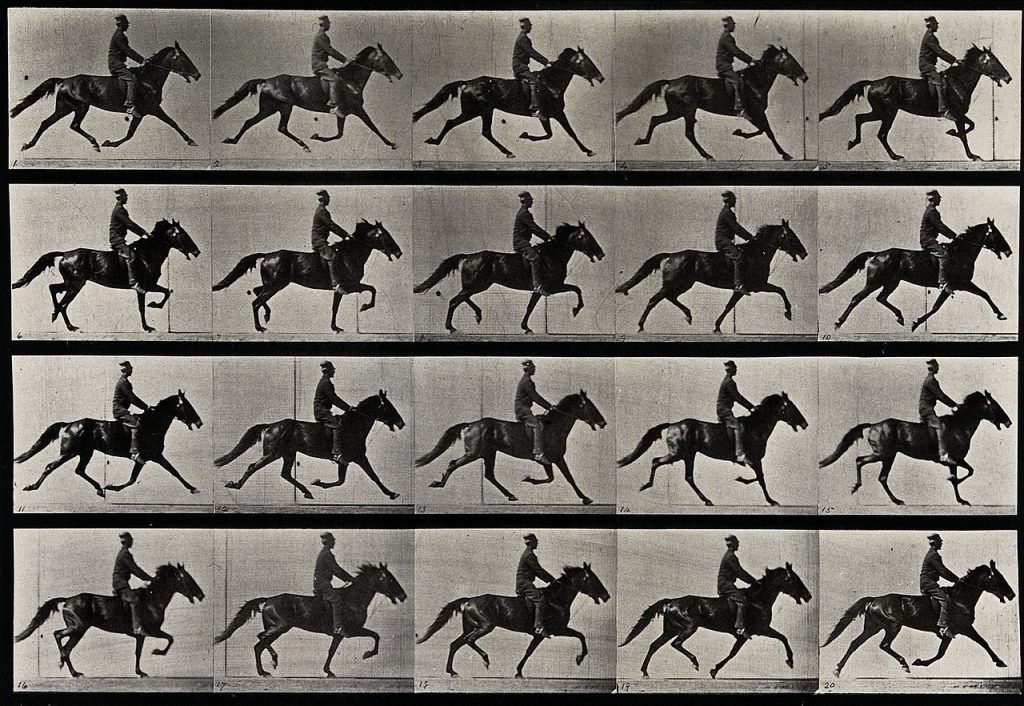This post is also available in Dutch.
Already for years I have refused to get a new TV, because movies look horrible on these state-of-the-art devices. Scarily detailed and with a very fake feeling to it. I have never understood why. Until now.
Through 24 images per second a world comes to life
Since the invention of the zoopraxiscope we have known that if we see images fast enough after each other it looks like a moving image. Magically the world comes to life and the horse of Muybridge starts running! According to Thomas Edison you had to show a minimum of 46 images per second, otherwise your eyes would tire. But back in the day ‘a film’ was something physical, with celluloid rolls that could not become too big. So it was decided to use 24 images per second instead. And this has been the golden standard of the movie industry until today. Even tough other options became available, such as video cameras. Those could record 60 images per second and gave a much more detailed recording. A famous genre that did make use of this cheaper method was the world of the Soap Opera. When watching television, these series looked very different from movies.
Interpolation makes old movies as new (and fake)
Years have passed since and TVs are becoming more and more ingenious. Modern TVs cannot only show film material way faster (60 images per second, or Hertz, is currently the minimum) but they also use tricks to smoothen the experience. Because, you see, for that awesome Star Wars movie, only 24 images per second are actually made. What to do with a TV that is able to show 120 images per second? A possibility is to simply repeat images, but one could also create new images by thinking of what else could be shown between two images. This is called interpolation. Interpolation is derived from mathematics and means that by using existing data points, new data points are derived. This fancy TV, in other words, calculates what the images between the real images would look like. And all of a sudden, the movement is way sharper than you’re used to. Ay, but there’s the rub… Not appreciates this modern experience. Our brain is so used to those high quality movies with 24 images per second, it feels weird. Everything looks “so real that it seems fake”. Like those cheap soap series. This effect is therefore called the Soap opera effect.
Your brain likes it slow
It is simply your experience that causes this effect. Because you are used to expensive, high quality movies having a certain speed, and therefore ambiance, you associate a more smooth and detailed experience with cheaper productions, like soap opera’s. This shows that our brain uses previous experience when interpreting the world. Do you want to get rid of this? You can change your TV settings and turn off this interpolation. Or, you can watch some more TV on your fancy device so your brain gets used to this ‘new world’.
Image: Edward Muybridge via Wiki Commons
Author: Floortje Bouwkamp
Buddy: Felix Klaassen
Editor: Wessel Dieselaar
Translator: Jill Naaijen
Editor translation: Ellen Lommerse
